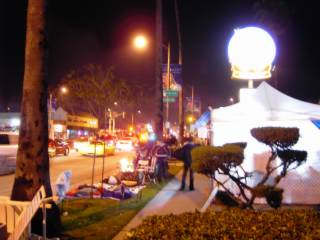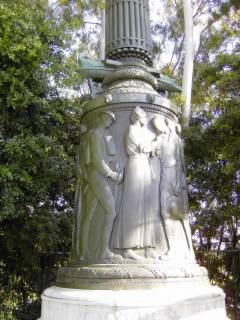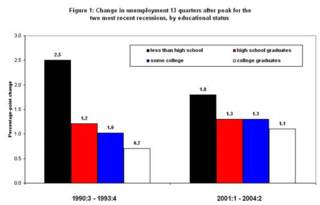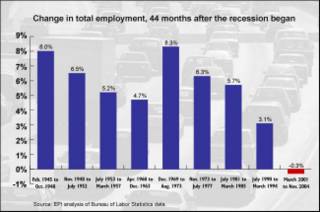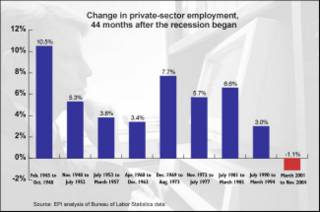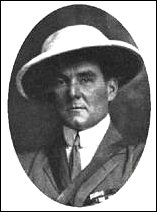Admit it, Americans like lists, including the "Best of" lists popular at this time of the year. On the other hand, some of us prefer the "Worst of" lists that pop up like bad mushrooms around New Year's. In keeping with that interest, Lake Superior State U. has released it's annual list of
Banished Words for 2004. I heard it discussed this morning on local public radio outlet
KPCC. Visit the site, and you can nominate your own choice(s) for 2005:
METROSEXUAL - An urban male who pays too much attention to his appearance. Bob Forrest of Tempe, Arizona, says it "sounds like someone who only has sex downtown or on the subway." Fred Bernardin of Arlington, Massachusetts, asks, "Aren't there enough words to describe men who spend too much time in front of the mirror?" X - Last year it was 'extreme.' This year, 'X' follows in its footsteps. "Marketers have latched onto this letter to grab the 'Generation-X demographic. X-files, Xtreme, Windows XP and X-Box are all part of this PR-powered phenomenon," said John Casnig of Kingston, Ontario.
PUNKED - As in bamboozled, duped, flimflammed, hornswoggled. Nominated by the Frank and Johnnie Show, WGN, Chicago. An old noun given new life as a verb because of the television show. Kill it before it grows.
PLACE STAMP HERE - Dennis K. McDermott of Oneida, New York, says, "It appears on 99% of the return envelopes provided by creditors with monthly billings. It's especially annoying when enclosed in a rectangle drawn in the upper right corner. (What if you miss?) And then…they inform you that 'The Post Office will not deliver without postage.' Can we legitimately claim to be a superpower if we need to be reminded to put a stamp on an envelope?"
Eric Hooper of South Lyon, Michigan, agrees: "If I'm too stupid to figure out where to put the stamp, then paying the phone bill is probably the least of my worries."
COMPANION ANIMALS - "They're called PETS." Nick Leach, Bloomington, Indiana.
BLING or BLING-BLING or any of its variations - "Hate, hate. Grate, grate," says Steven Phipps of Pueblo, Colorado. Received many nominations from across the United States. "This once street slang for items of luxury has now become so overused and abused that (everyone) has incorporated it into their vocabularies. Yes, your mom might say it. Nothing could kill the mystique of a word faster." Todd Facklas, Chicago.
LOL and other abbreviated 'e-mail speak,' including the symbol '@' when used in advertising and elsewhere - Alex G. of Warsaw, Poland, says, "It's everywhere on the net! OMG! u r chattin to sum1 then…lol this and lol that….Get it away!" "I wonder if anyone really laughs out loud when they use this short-hand Instant Messenger slang?" Rachel Rose, Pickford, Michigan.
EMBEDDED JOURNALIST - Nominations for this Iraq War II phrase came from throughout the U.S., Canada and overseas. "I'm a journalist and until the war started, I'd never heard this term. In the interest of objectivity, journalists probably shouldn't be embedded with any organization they regularly cover." Ken Marten, Hamtramck, Michigan.
"It seems to be a hip way of saying, 'at the scene,'" said Tim Bednall, Tokyo.
"The next time I hear it used by the media, I'm going to embed my foot in the TV!" Ellen Brown, San Diego.
SMOKING GUN - Another one that came to us from Iraq, but is widely used elsewhere. "Let's give the 21-gun salute to this overused analogy," says Andrew Pagano, Montgomery Village, Maryland.
"Remember the television show 'Gunsmoke'? Now THERE were smoking guns!" Scot Moss, Madison, Wisconsin. "What's wrong with 'hard evidence'?" Kevin O'Sheehan, Bangkok, Thailand.
SHOCK AND AWE - Still another from Iraq. "I'm just waiting on 'Shock and Awe Laundry Soap' or maybe 'Shock and Awe Pool Cleaner,'" says Joe Reynolds of Conroe, Texas.
CAPTURED ALIVE - "The news keeps stating that Saddam Hussein was 'captured alive.' Well, what other way are you going to be captured? Maybe 'found dead' or 'discovered dead' never 'captured dead.'" Bill Lodholz, Davis, California.
SHOTS RANG OUT - "I'm tired of hearing this phrase on the news. Shots don't 'ring' unless you are standing too close to the muzzle, and in that case you don't need the reporter telling you about it." Michael Kinney, Rockville, Maryland.
RIPPED FROM THE HEADLINES - Gerald Anderson of Winter Haven, Florida, says, "TV shows are often described as being 'ripped from the headlines.' Kicking and screaming, no doubt."
SWEAT LIKE A PIG - Tim Croce of Torrington, Connecticut says "Pigs do not have sweat glands; that is why they roll in mud to cool themselves." Nevertheless, Tim said he was sweating like a pig to get this nomination to us.
IN HARM'S WAY - "Who is Harm, and why would you want to get in his way?" Thomas Watts, Sumter, South Carolina.
HAND-CRAFTED LATTE: We're not sure where Orin Hargraves of Westminster, Maryland discovered this beauty, but we agreed with his assertion that "This compound is an insult to generations of skilled craftspeople who have mustered the effort and discipline to create something beautiful by hand. To apply 'hand-crafted' to the routine tasks of the modern-day equivalents of soda jerks cheapens the whole concept of handicraft."
SANITARY LANDFILL - "Ever been to one?" asks Stan Slade of Long Beach, Mississippi. "Not the cleanest place in the world. What happened to the county or city dump?"
During the height of the war last spring, Tyler King of Toronto, Ontario, told us he'd like to see all words rhyming with Iraq banished, and he sent this lovely poem:
"Lately, every news report has tried to create a rhyme about Iraq. Frankly, I'm sick of hearing about the 'Attack on Iraq'! There is no turning back from an attack on Iraq to (get) that quack who likes to yak with his terrorist pack about having the knack to bring weapon inspectors back."
Finally, the committee admits that it is not infallible. On the 2003 list we included 'frozen tundra' as being redundant and heard back from many people who pointed out that tundra does not mean 'frozen land.' Green Bay Packers fans were especially adamant, even though sportscasters frequently use the phrase to describe their home turf. We hereby reinstate 'frozen tundra.'
